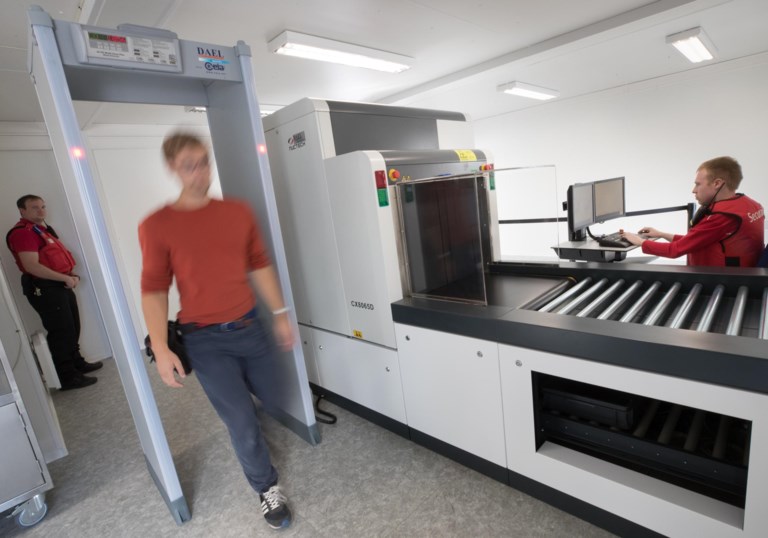A decision by the government of Lithuania has raised concerns in Belgium about the security of fixed and mobile scanners constructed by the Chinese firm Nuntech, De Standaard reports.
This week Lithuania decided to ban Nuntech technology, after the country’s parliamentary commission on homeland security issued a damning report on the company.
“We have plausible evidence that Nuntech's equipment can collect data about the movement of goods and people using passport numbers and fingerprints,” MP Laurynas Kasciunas, chair of the commission, told De Standaard.
A Chinese law from 2017 obliges companies like Nuntech to hand over data on demand to the security services. And while there is no clear evidence that Nuntech has already done so, the fact it is able to gather data, and would have to hand it over is required, is enough for Lithuania.
“We cannot guarantee that Nuntech will not later install backdoors through which security services can access that private data,” Kasciunas said.
A similar concern recently led to 5G technology from the Chinese company Huawei being banned from telecoms networks in several EU countries.
Nuntech was set up by the son of the former Chinese president Hu Jintao, and is partly owned by the state-owned company involved in the development of civilian and military nuclear technology in China.
Nuntech scanners are installed at ports, airports and train stations in Belgium, where they are said to be ‘standalone’ – not connected to the IT network.
Nuntech’s activities were banned last year in the US, and Canada has ordered it cannot supply scanners for Canadian embassies. And the company’s activities are starting to attract negative interest in the Netherlands and the European Parliament.
But the Customs authorities in Belgium appear unconcerned.
“This concern is not new,” said Francis Adyns, spokesperson for the customs service.
“But as far as we are concerned there has so far been no reason to be worried.”
According to the annual report of Belgian State Security, “Our country must guard its strategic independence from foreign actors such as China.”
The organisation also warns that China is actively using organisations and state-owned companies “as cover organizations for their intelligence activities.”
“This is a problem for me,” said federal MP Michael Freilich (N-VA).
“This would allow them to infiltrate our airports. It is impossible to think that there is no link between Nuntech and the Chinese government, which according to State Security pursues an aggressive espionage policy. You wouldn't give China the keys to your house by having them install such technology, would you? It cannot be that our government is so lax about cyber security.”
Freilich has called on Vincent Van Peteghem (CD&V), finance minister responsible for the customs service, to consult the Council of State for its opinion, and to organise hearings in the parliament.
A spokesperson for Van Peteghem told De Standaard, “There is no indication that these scanners would be able to forward information without our intervention. We also have multi-channel signal detectors and we can check for any presence of transmission sources.”
Alan Hope
The Brussels Times

